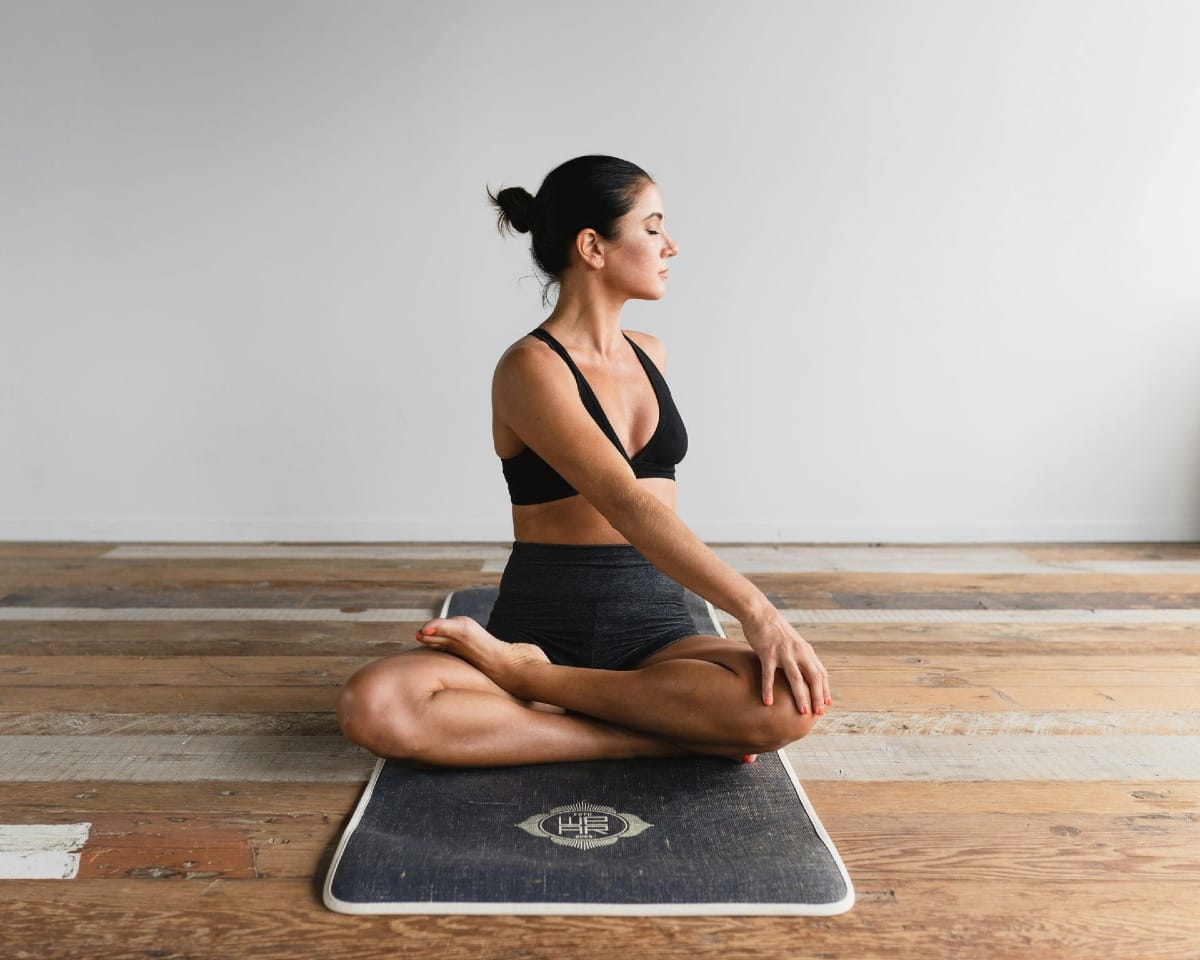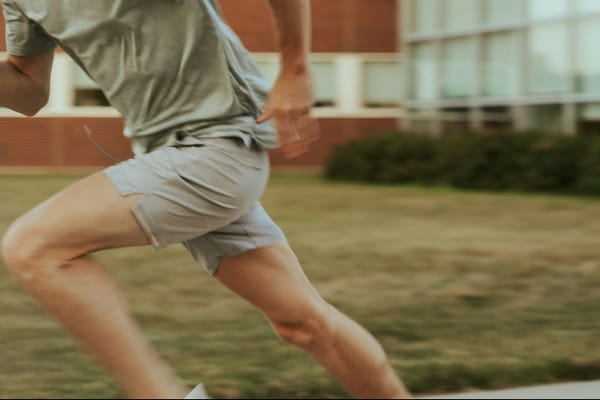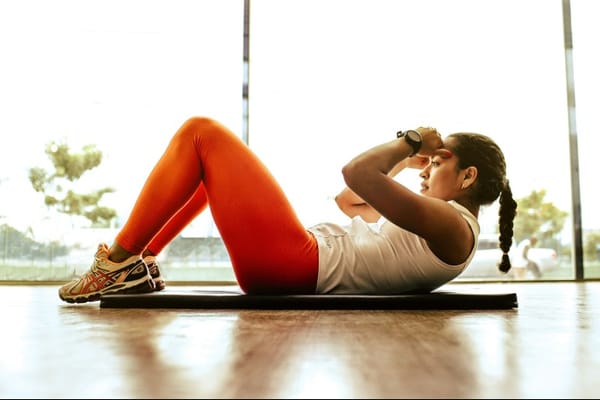For years, we've been told that exercising too close to bedtime can disrupt our sleep. But what if that long-held belief isn't entirely accurate? Recent research is challenging this notion, suggesting that short bursts of exercise in the evening might actually improve our sleep quality. This article explores the fascinating relationship between evening exercise "snacks" and sleep, offering insights that could revolutionize your nighttime routine.
Key Takeaways:
- Evening exercise "snacks" can improve sleep quality and duration.
- Short, light-to-moderate intensity workouts are most beneficial.
- These exercise snacks may help you fall asleep faster and spend more time in deep sleep.
- Timing matters: aim for at least an hour before bedtime.
- Individual responses may vary, so pay attention to your body's signals.
Understanding Exercise Snacks
Exercise snacks are short bursts of physical activity, typically lasting just a few minutes. These brief sessions of movement can be spread throughout the day, including in the evening hours. Recent studies have shown that these mini-workouts can have surprising benefits, particularly when it comes to sleep quality.
The Science Behind Evening Exercise and Sleep
Contrary to popular belief, engaging in light-to-moderate exercise in the evening may actually enhance your sleep. A study published in the journal Sleep Medicine found that participants who performed short bouts of bodyweight exercises in the evening experienced improved sleep quality[2].
The research showed that those who engaged in evening exercise snacks:
- Fell asleep faster
- Spent more time in deep sleep
- Experienced fewer sleep interruptions
These findings challenge the long-standing advice to avoid exercise close to bedtime, suggesting that the right kind of evening activity could be beneficial for sleep.
Benefits of Evening Exercise Snacks
Improved Sleep Duration
One of the most significant findings is that evening exercise snacks may lead to longer sleep duration. Participants in the study gained an average of 30 minutes of additional sleep per night[4]. For many people struggling with insufficient sleep, this extra half-hour could make a substantial difference in overall health and well-being.
Enhanced Sleep Quality
It's not just about sleeping longer; the quality of sleep also improves. Evening exercise appears to increase the amount of time spent in deep sleep, which is crucial for physical recovery and cognitive function[5]. This deeper sleep can lead to feeling more refreshed and energized upon waking.
Faster Sleep Onset
Falling asleep quickly can be a challenge for many, especially in our fast-paced, technology-driven world. Evening exercise snacks may help reduce the time it takes to fall asleep, allowing you to drift off more easily[5].
Types of Evening Exercise Snacks
The most effective evening exercise snacks are typically:
- Short in duration (5-10 minutes)
- Light to moderate in intensity
- Focused on bodyweight exercises or light cardio
Some examples include:
- A brief yoga sequence
- A short walk around the block
- A set of bodyweight squats, push-ups, or lunges
- Light stretching or mobility exercises
Timing Your Evening Exercise
While the research supports evening exercise, timing still matters. It's generally recommended to complete your exercise snack at least an hour before bedtime[6]. This allows your body temperature and heart rate to return to baseline, promoting a state conducive to sleep.
How Evening Exercise Affects Sleep Physiology
Evening exercise can positively influence several physiological factors that contribute to better sleep:
- Body Temperature: Exercise raises body temperature, and the subsequent cooling process can trigger sleepiness.
- Hormonal Changes: Physical activity can help regulate hormones like cortisol and melatonin, which play crucial roles in sleep-wake cycles.
- Stress Reduction: Even short bouts of exercise can reduce stress and anxiety, making it easier to relax and fall asleep.
- Circadian Rhythm Adjustment: Regular evening exercise may help synchronize your internal body clock, especially for those with irregular schedules.
Considerations for Different Age Groups
The effects of evening exercise on sleep may vary depending on age:
- Young Adults: Generally more resilient to evening exercise, often experiencing the most significant benefits.
- Middle-Aged Adults: May need to be more cautious with timing and intensity but can still benefit from evening exercise snacks.
- Older Adults: Often experience improved sleep quality with evening exercise, but should start with very light activities and consult a healthcare provider.
Combining Evening Exercise with Sleep-Friendly Nutrition
To maximize the sleep benefits of your evening exercise snack, consider pairing it with sleep-promoting foods. Some options include:
- A small serving of yogurt, which contains tryptophan[9]
- A handful of almonds or walnuts, rich in melatonin
- A banana, providing magnesium and potassium to help relax muscles
However, be cautious about eating too close to bedtime, as large meals can disrupt sleep[7].
Personalizing Your Evening Exercise Routine
While research supports the benefits of evening exercise snacks, individual responses may vary. It's essential to listen to your body and adjust your routine accordingly. Some tips for personalizing your approach:
- Start Small: Begin with very short, light exercise sessions and gradually increase duration and intensity.
- Monitor Your Sleep: Keep a sleep diary to track how different types and timings of exercise affect your sleep quality.
- Be Consistent: Try to maintain a regular schedule for your evening exercise snacks to help regulate your body's internal clock.
- Stay Hydrated: Drink water before and after your exercise snack, but avoid large amounts close to bedtime.
- Create a Wind-Down Routine: Follow your exercise snack with relaxing activities like reading or gentle stretching to prepare for sleep.
Conclusion
The emerging research on evening exercise snacks offers a promising approach to improving sleep quality and duration. By incorporating short, light-to-moderate intensity workouts into your evening routine, you may find yourself falling asleep faster, sleeping longer, and waking up more refreshed.
Remember, the key is to find what works best for you. Pay attention to how your body responds to different types and timings of evening exercise, and don't be afraid to adjust your routine. With a little experimentation, you might discover that these brief bursts of activity are just what you need to unlock better sleep and improved overall health.
As always, if you have any underlying health conditions or concerns about starting a new exercise routine, consult with your healthcare provider. Sweet dreams and happy exercising! 🏃♀️🚴♂️
Citations:
[1] https://www.bicycling.com/health-nutrition/a61947593/evening-exercise-snacks-and-sleep-study/
[2] https://www.ncbi.nlm.nih.gov/pmc/articles/PMC6989626/
[4] https://www.health.harvard.edu/staying-healthy/does-exercising-at-night-affect-sleep
[5] https://www.sciencedaily.com/releases/2024/07/240716202259.htm
[6] https://www.sleepfoundation.org/nutrition/is-it-bad-to-eat-before-bed
[7] https://www.newsweek.com/simple-evening-exercise-improve-sleep-routine-1925969
[8] https://www.bearmattress.com/blogs/news/5-sleep-friendly-foods-to-eat-after-a-late-night-workout














Member discussion